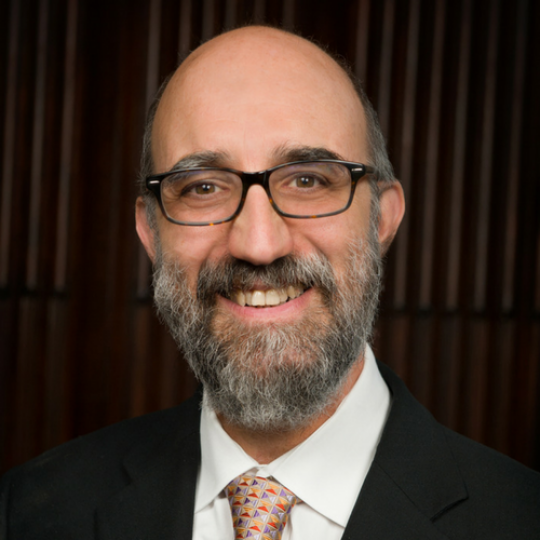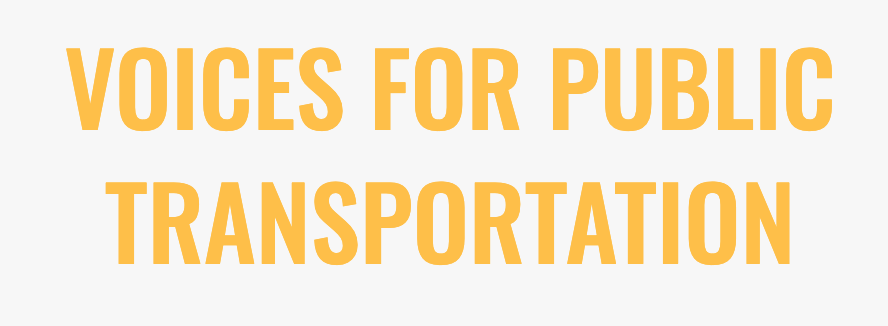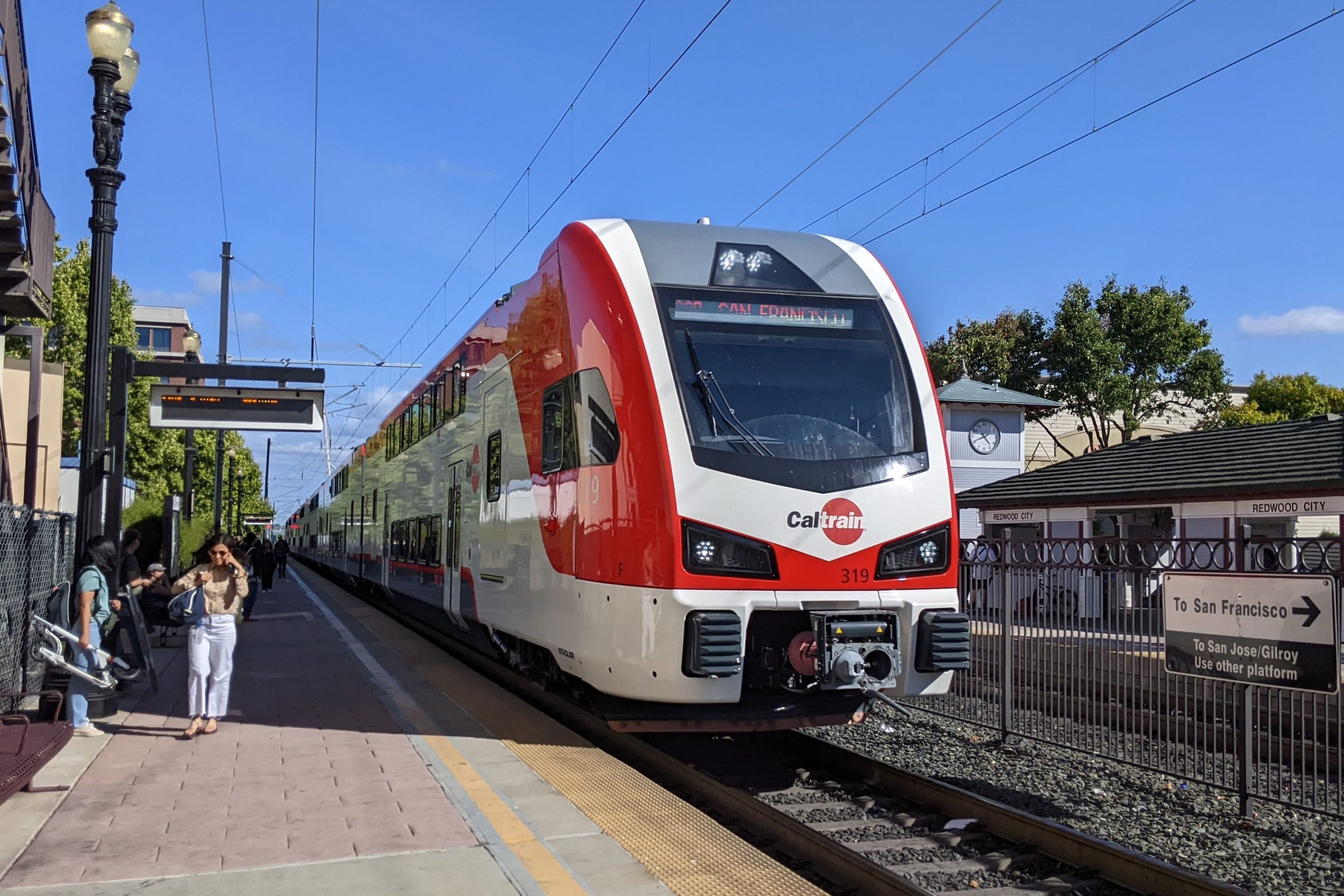Throughout the summer, Streetsblog San Francisco completed a four-part interview series on how to "Build a Better 'Faster Bay Area'" for 2022 or beyond. After backers of the measure pulled the proposal in March, a window opened for supporters of the measure to regroup and build a larger coalition and a better measure for some future election.
However, there was a competing measure being proposed for this fall's ballot brought by the Voices for Public Transportation Coalition that was also being discussed. Some of the best practices that were recommended for a future Faster proposal by Angie Schmitt or Steven Higashide in our series were already part of the Voices for Public Transportation proposal. These included scrapping the sales tax as a funding measure and bulking up funding for transit operations instead of proposing large capital projects.
Today, we speak with Richard Marcantonio, the managing attorney for Public Advocates, about the differences between their proposal and the Faster one and what can be done now to build a coalition for the best ballot measure in 2022 or beyond.
Damien Newton (SBSF): Thank you very much for joining me today.
I’ve been scolded by Adina Levin for calling this series “Building a Better 'Faster Bay Area'” as the title assumes that we should be starting with Faster Bay Area’s proposal from this year as our starting point. But Faster Bay Area wasn't the only transportation funding proposal being discussed this year. You were involved with a different proposal, put forward by the Voices for Public Transportation Coalition.
Since we’ve already talked quite a bit about Faster Bay Area, can we start this conversation by talking about how your proposed ballot measure was different than that one?

Richard Marcantonio, Public Advocates (Richard): Back before the pandemic, before the ballot measure was paused, the Voices Coalition was pushing for a regional ballot measure that would be funded by a progressive revenue source, like a millionaire’s tax. Whereas the FASTER group insisted on a regressive one cent sales tax, in perpetuity no less.
Secondly, we would spend those progressive revenues not on long-term multi-trillion mega-projects like a new BART Tube across the Bay, but rather on immediately boosting operations on the transit we already have, and reducing fares. The impact would be to boost ridership, create good green jobs, and reduce carbon emissions. We called it a Green New Deal for public transportation.
So it was a very different vision than what the corporate CEOs at the Bay Area Council were proposing, both in terms of who was taxed, and how the money was spent.
SBSF: There’s two things there I’d like to explore a little farther.
The first is the funding mechanism that you propose versus the one that was proposed by Faster. A lot of transportation reformers that I talk to - progressive people who want an inexpensive system that works for as many people as possible - feel that a measure funded by sales tax is the measure that has the highest chance of passing.
Voices was talking about a funding mechanism that wouldn’t fall on working class people but would instead fall on larger businesses and people that are more well-off.
Richard: An independent economist conducted a revenue study for Voices and we used the results to conduct a poll. The poll was put out the first weeks of the pandemic when you might have thought that voters’ response to any question about funding public transportation would be to avoid it like the plague. (Pun intended.)
But what we found was that support for funding transit was as great as it had ever been. And the millionaire tax actually outpolled a sales tax.
SBSF: I have the press release up in front of me, and the piece by Vinita Goyal (then with the Silicon Valley Community Foundation) and Thea Selby that announced the poll results in Next City.
It’s an important point that, while sales taxes have become the favored mechanism, when polling is done comparing it to other taxes, especially a tax on the rich or large corporations, it doesn’t do as well.
This brings us to another point.
In the other interviews we’ve talked about how, when you have a group of decision makers gathered at a table, they will make decisions that benefit the people at the table. This is true even when people are gathered with the best intentions.
So you don’t often see a poll on what is going to work best, because the people that would pay the most under a millionaire tax are the same people deciding what’s in the poll.
Richard: One of the things the Voices Coalition was raising last fall was that “Faster Bay Area” which was dominated by the CEOs at the Silicon Valley Leadership Group and the Bay Area Council were essentially trying to ram through their priorities, but were actually privatizing what should be a public process.
When there’s a sales tax proposed at the county level for transportation, there’s a public agency in charge of doing that. They run a public process, and it may be a good one or a bad one, but it’s a public process run by a public agency.
These CEOs were trying to go around that process by putting themselves in the driver’s seat for the process. They were saying that they were the ones that had planned for the major transportation projects in the area going back since World War II.
But what we’re seeing now is that the transit system isn’t working very well for most of us. So in effect, it seems to me that what they’re saying is, “We got us into this mess, trust us to get us out of it.” We’re saying that the people who are in the best position to know what we need are the working people who operate and ride transit, not the CEOs.
SBSF: That plays right into another thing that we talked about in some of the other interviews, that it matters a lot who is at the table when creating a ballot measure both in terms of creating the best measure and in terms of earning the most support. If you don’t have groups that represent transit riders, it’s going to be hard to earn their support.
Changing gears, one of the silver linings of this pandemic is that we can see, very clearly, whether or not our transit systems are working for the essential workers, the backbone of our society and economy. Is the system working? If not, what kind of overhaul are we looking for?
Richard: On the first point, you’re absolutely right. You need actual riders, actual voters, to get proposals like this to the finish line. The Voices Coalition has been very successful in bringing together huge membership organizations including the central labor councils in San Francisco, Alameda and Contra Costa Counties. We’ve got the Amalgamated Transit Union and the Oakland teachers union as well as the San Francisco Transit Riders, the riders union in Santa Clara County and many other membership organizations. We got Sunrise Bay Area at the table. You can see that on the website.
There’s been a narrative in our society for years that the people who were essential were the billionaire and the stockholders. Now that narrative has been upended. People are seeing that, in this crisis, it’s not the ultra-rich that are keeping them afloat, it’s the guy driving the UPS truck, it’s the clerk at the grocery store, it’s the healthcare workers. And it’s the transit workers.
These men and women are heroically risking their health and the health of their families to keep the rest of us afloat.
Here’s how this translates to transit ridership: what you’re seeing is that the biggest ridership losses are falling on commuter lines like BART. Why? Because so much of their ridership is now working from home.
Whereas the bus systems are not only seeing much smaller losses, they’re also carrying more of the essential workers and more transit dependent people that need transit to access essential destinations like hospitals, or grocery stores.
SBSF: So now we’ve made the case that we need to do things differently, and have a different looking measure than the Faster Bay Area measure. So we’re probably two years out from having a major transportation funding measure on the ballot. Once the 2020 election is over, what should we be doing to prepare for a measure in 2022 or sometime thereafter.
Richard: The Voices for Public Transportation Coalition is looking at where we are and seeing three phases for transit.
The first front, that we’ve been fighting on since April, is to make Bay Area transit safe for riders and drivers. Before we brought that discussion forward, our regional transportation agency, MTC, wasn’t paying much attention to it and was ignoring the voices of people on the front lines. MTC took very weak steps, but our coalition members have now won masks and hand sanitizer on all transit vehicles at two of our largest systems. So, that’s been a fight. If people don’t feel safe on transit, they’re not going to come back to riding transit.
The second phase, which we’re now moving into, even as we continue to fight on the safety front, is the immediate financial cliff. We had an infusion of CARES Act funding, $25 billion in emergency transit funding from the feds, and the Bay Area’s $1.3 billion share has been distributed to the region’s transit agencies. They are beginning to run out of that money now.
We’re seeing, in real time, transit agencies in the Bay Area and beyond teeing up massive service cuts and layoffs. So, we’re moving forward to fight at the agency level, at the regional level and at the state level to see where funding can be shifted from less essential capital projects to emergency transit operating funding.
Anybody with their eyes open knows that Congress isn’t going to act on an emergency stimulus bill anytime in the foreseeable future.
But we have the resources in the Bay Area and in California. We have the funding, which right now is overwhelmingly being spent on capital projects when some of it could be shifted to operating transit.
We need to start making that happen at the local level.
For instance, at the Valley Transportation Authority in Santa Clara County, advocates, riders and the union were out in force last week arguing that county sales tax funding should be front loaded for operations. Those type of demands are going to be made throughout the region. At Golden Gate Transit they’re talking about major layoffs as early as November. And of course, we’re not hearing any discussion of layoffs or pay cuts for upper management.
MTC, back in 2012, determined that it had $5.9 billion in its Long Range Plan that it was spending on projects other than operating transit that it could have spent boosting transit service levels. So we know there are resources out there.
The third phase, once we save transit from extinction, and this is a real risk…but once we save it, we need to build the support for a regional measure that will bring abundant service for public transit at low, or no, fares. This is what will bring more people onto transit and out of their cars.
But it has to be the right measure.
Right now, Californians are asking themselves if we’re finally ready to put progressive revenue generation back on the public agenda. We’re asking ourselves that in regards to Proposition 15, the Schools and Communities First measure that would reform Proposition 13 while protecting homeowners. In 1978, when Proposition 13 was enacted, AC Transit took a huge hit and imposed deep service cuts.
This has been going on for decades. Since 1978, we’ve been underfunding public services generally, and underfunding public transportation, in particular.
Passing Proposition 15 is going to be a bellwether. It’s going to send a message to the legislature, to the governor and beyond that Californians are ready to fund abundant public services by taxing the ultra-rich and large corporations at rates like the U.S. did for decades before Prop. 13.
A sales tax is going to be dead on arrival in the legislature next year. The idea of taxing workers during a profound economic downturn is just not going to fly. For anything to pass, the revenue is going to need to come from progressive taxation. In the multiple crises we’re facing today, people are seeing that taxation isn’t a dirty word. Taxes are the dues we pay for membership in a society that promises to provide for our collective needs.For transit, that means making it safe, restoring service, and ultimately bringing on a Green New Deal.






